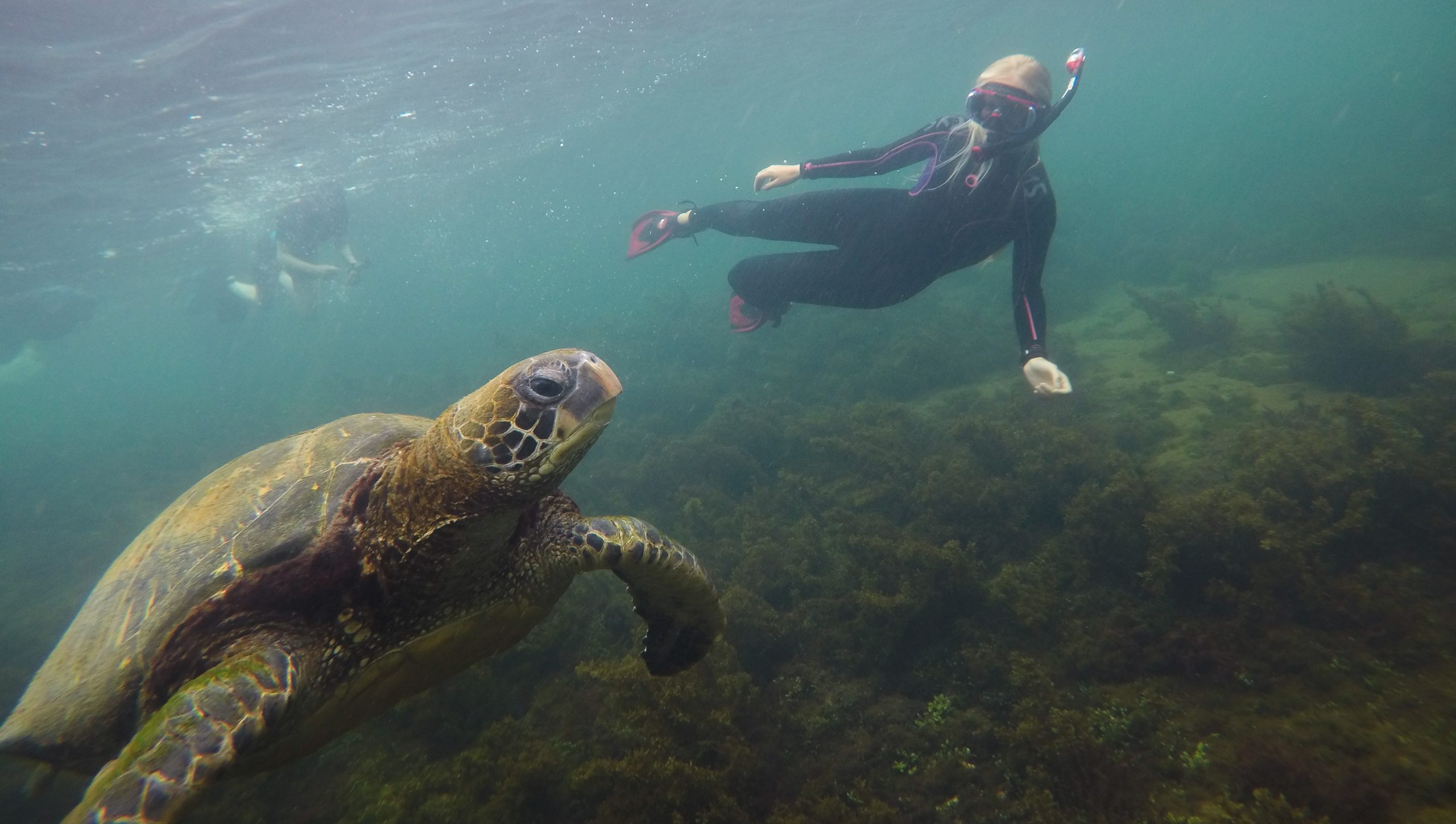Changing Perspectives, Growing in Knowledge: A journey from the Amazon to Galapagos
Program Description
This study abroad will take you on a dramatic journey through the vastly different ecosystems and cultural landscapes of the lowland tropical forests of the Amazon Basin, one of the earth’s highest mountain ranges, and the biodiverse and unique Galapagos Islands. The journey will give you the opportunity to observe how nature and culture interface dynamically with each other in the Ecuadorian context and to place that new knowledge into cognitive perspective. You will spend time at research stations in a pristine Amazon tropical forest and in a tropical cloud forest. You’ll see how people live in Andean villages above 12,000 feet. You’ll stay with host families in Quito, the capital city, while studying Spanish at an Ecuadorian university. You’ll explore and snorkel throughout the Galapagos Islands and learn from people you meet about the challenges of living 600 miles away from the mainland in a national park.
The multidisciplinary academic focus of the trip is natural history,philosophy,country studies and Spanish language.
The natural history focus of the program will help you develop a sense of place, using a scientific approach. How does the environment influence what type of flora and fauna live in that environment? How do biotic and abiotic factors influence the biodiversity of a place?
While philosophy may seem like a big academic divergence from natural history, it actually supports the topic nicely. The philosophy course will focus on epistemology (the study of knowledge); more precisely, we will study how knowledge is gained, interpreted, and used. The unique model for this dichotomy between gaining facts and developing knowledge that we will use on this trip comes from the foundational journey of Charles Darwin, who served as a substitute naturalist on the five-year, round-the-world voyage of the HMS Beagle. His lens was that of a biologist and geologist, and, while still influenced with the largely scholastic perceptions of his time, his new scientific knowledge and the improved scientific processes of his era (particularly the Scientific Method) led him to use that knowledge to revolutionize what was known of the natural and physical world. Understanding the social and environmental issues that Darwin was dealing with will provide a fantastic example of how these same factors need to be navigated today in our pursuit of knowledge.
In country studies, we’ll look at place through a complex view that includes history, economics, politics, art and music. You’ll learn to develop your cultural lens, your ability to understand a culture that may be distinct from your own . Distinct cultural lenses yield distinct perspectives. What do Ecuadorian cultural spaces look, sound, feel like? How do some of their ways of being in and viewing the world differ from or resemble yours? What core values inform their perspectives and behavior – and yours? To find out, you will be continually observing your surroundings, participating in what is going on, connecting with people from various places and walks of life, and reflecting on what you see, hear and experience.
Language too is an inherently integral part of place. Learning Spanish through immersion in fact means learning it in its “home territory” and cultural context. You’ll have awesome classes with native language teachers for a foundation. But the heart of your language learning will be its experiential nature – the act of decisively “plunging in” to the language and the culture, just as you’ll plunge into the ocean to experience its hidden wonders. That will mean soaking in the Spanish you are constantly hearing around you and using it yourself to navigate through your day. You’ll notice how much people will appreciate your efforts to communicate in their language when you are standing in their cultural space/place. As you speak the language and experience the culture(s), you’ll be developing the skills of intercultural competence so essential for a global citizen.
Our host throughout the abroad will be Universidad San Francisco de Quito (USFQ – https://www.usfq.edu.ec/en), a large, private, liberal arts university in Ecuador. They regularly support study abroad programs of other colleges and universities and host more than 1,000 international students each year. USFQ maintains a cooperative arrangement with the University of North Carolina, who co-shares the management of the research station in the Galapagos on San Cristobal.
